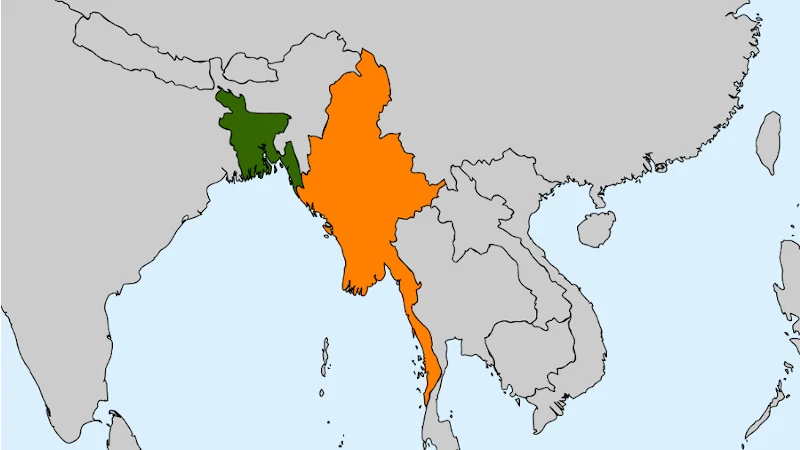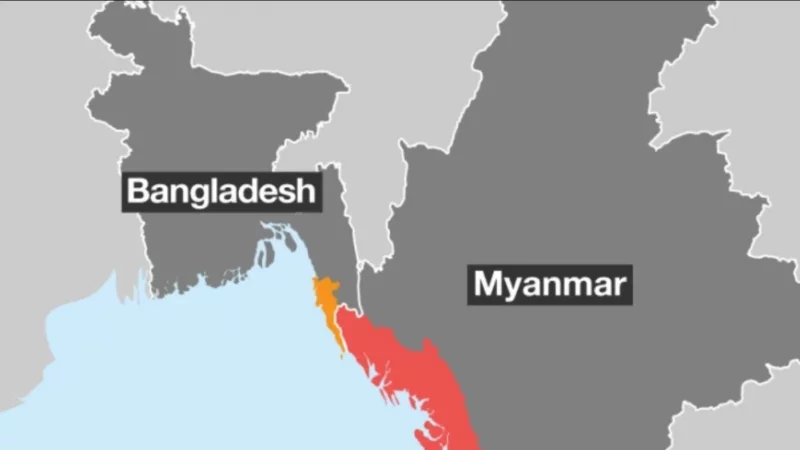The narrative suggests a complex conspiracy where Western nations, including the United States and Britain, aim to create a Christian state by partitioning territories from Bangladesh, Myanmar, and India. The alleged collaboration involves regional insurgent groups like the Kuki-Chin National Front (KNF) and the United Liberation Front of Assam (ULFA). Bangladesh Prime Minister Sheikh Hasina disclosed these claims, adding layers of geopolitical intrigue and controversy.
Alleged Conspiracy for a Christian State in South Asia
The theory posits that Western nations are plotting to establish a Christian state similar to East Timor. This proposed state would include regions from Bangladesh, Myanmar, and possibly India. The narrative links this conspiracy to a broader Western strategy to influence and control this geopolitically significant region. According to Sheikh Hasina, these efforts are disguised under various guises, including humanitarian and missionary activities.
Involvement of Insurgent Groups
Key insurgent groups mentioned include the Kuki-Chin National Front (KNF) and the United Liberation Front of Assam (ULFA). These groups, known for their long-standing militancy, are reportedly being used by Western nations to destabilize the region and facilitate the creation of the Christian state. The KNF has purportedly formed alliances with Islamist militancy outfit Jamaat Ul Ansar Fil Hind Al Sharqiya (JAFHS) for strategic reasons. This collaboration aims to leverage JAFHS’s influence to further the KNF’s territorial ambitions.

Sheikh Hasina’s Allegations
Sheikh Hasina claimed that a foreign national offered her political support in exchange for allowing the establishment of a foreign airbase on Bangladeshi soil. Though she refrained from naming the country directly, the narrative implies that this “white man” represents U.S. interests. This claim is set against a backdrop of longstanding rumors and political statements suggesting U.S. strategic ambitions in the region.
Strategic Importance of St. Martin’s Island
St. Martin’s Island, a small island in the Bay of Bengal, is highlighted as a critical point of interest for the U.S. The island’s strategic location has allegedly made it a target for U.S. military aspirations. Historical context is provided with past denials by U.S. officials about any intentions to establish a base there. Despite these denials, the narrative insists that Washington has continued to eye the island for strategic purposes.
Christian Missionary Activities
Western NGOs and Christian missionaries are accused of working covertly in the border areas of Bangladesh, India, and Myanmar. Their activities allegedly include converting local populations and spreading claims of Christian persecution to garner international sympathy and support. The narrative suggests that these efforts are part of a larger plan to prepare the ground for the proposed Christian state. The missionaries’ propaganda purportedly connects the tribal populations across the three countries by emphasizing shared ethnic and cultural ties.
Responses from Bangladeshi Politicians
Various Bangladeshi political figures have expressed concerns about foreign interference. Rashed Khan Menon, president of the Workers Party of Bangladesh, and Hasanul Haque Inu, president of the Jatiya Samajtantrik Dal, are among those who have publicly questioned U.S. motives in the region. They suggest that the new U.S. visa policy and other actions are part of a strategy for regime change in Bangladesh, aimed at destabilizing the current government.

Historical Context and Credibility
The narrative draws on historical events and geopolitical dynamics to support its claims. The comparison to East Timor, which gained independence from Indonesia under different circumstances, is used to illustrate the plausibility of such a Western plot. However, the theory’s credibility is challenged by the lack of concrete evidence and independent verification. The claims appear to be largely anecdotal, and the logistics of creating a new state by partitioning three nations are highly complex and implausible.
Internal Political Dynamics
The narrative may also be influenced by internal political dynamics in Bangladesh. Sheikh Hasina’s claims and the responses from other political figures could be part of broader election strategies and efforts to rally nationalist sentiments against perceived foreign threats. The timing of these statements and the emphasis on foreign plots could be aimed at consolidating political power and diverting attention from domestic issues.
Broader Geopolitical Implications
The alleged plot has significant geopolitical implications. If true, it would represent a major shift in regional power dynamics and could lead to increased tensions between the involved nations and the West. The narrative underscores the strategic importance of South Asia, particularly in the context of U.S.-China competition and the broader Indo-Pacific strategy. The mention of the Quadrilateral Security Dialogue (Quad) adds another layer of geopolitical context, suggesting that Western nations may be using various strategies to counter Chinese influence in the region.
The narrative of a Western conspiracy to create a Christian state in South Asia, while dramatic, lacks substantive evidence and appears to be rooted in geopolitical speculation and internal political maneuvering. While the strategic interests of Western nations in the region are undeniable, the specific claims of orchestrating such a radical territorial reconfiguration do not hold up to scrutiny. The narrative serves to highlight the complexities of regional politics, the interplay of internal and external influences, and the strategic significance of South Asia in global geopolitics.
